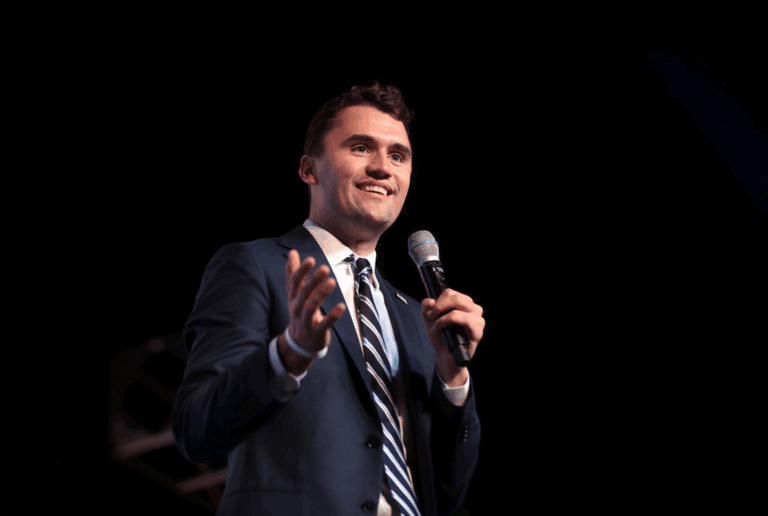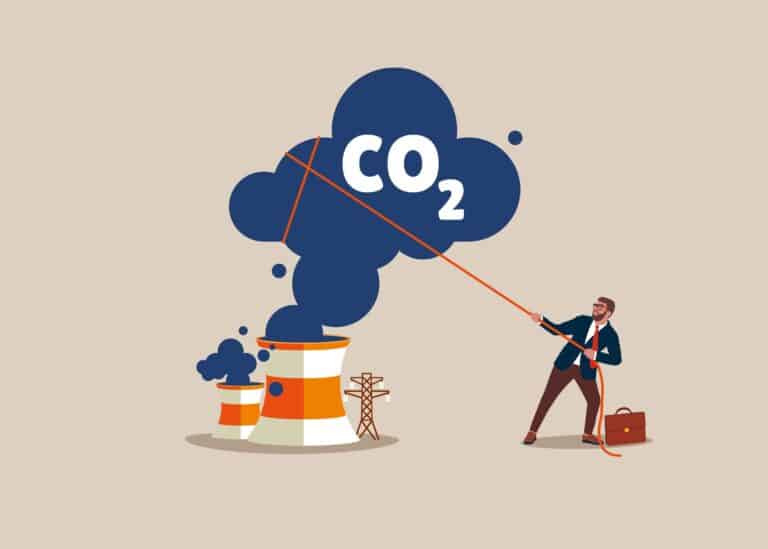In 1989, after the unforeseen fall of the Berlin Wall, a baffled American diplomat who had long been stationed in Germany was asked for his expert opinion on what the wall coming down ultimately meant. His rueful answer was that it meant there were no longer any experts on Germany.
Donald Trump presents us with a similar conundrum. How to explain his extraordinary rise? In absolute defiance of conventional wisdom, the billionaire real estate developer and reality TV star has captured the leadership of the Republican Party, altered the American political conversation, and completely befuddled the commentariat.
Trump is neither a liberal nor a conservative, but a populist outsider, whose politics fit uneasily into any of the standard categories. His pronouncements on, say, torture, Mexican rapists, and Muslim terrorists, not to mention his general arrogance, vulgarity, and bombast, offend both the left and right. Yet he nevertheless embodies the political hopes of millions of Americans. How then to explain his popularity?
Most attempts to understand the Trump phenomenon rely on one or more of three themes. The first is that the Republican party elite has lost touch with their base. Traditional supporters are furious with the party leadership, who, like their rivals in the Democratic party, are beholden to a Washington web of lobbyists, special interests and cronyism. On issues which most Republicans consider fundamental, such as the need to control immigration, GOP lawmakers have proposed legislation which is indistinguishable from their Democratic counterparts. The base feels betrayed and Trump is the beneficiary. As a party outsider, he has given voice to its anger.
The second theme posits that the mainstream media has lost touch with the American electorate. New York Times commentator David Brooks captured this disconnectedness in a mea culpa: “I was surprised by Trump’s success because I’ve slipped into a bad pattern, spending large chunks of my life in the bourgeois strata — in professional circles with people with similar status and demographics to my own.”
Brooks is hardly alone. The media has proven tone-deaf to many of the frustrations and anxieties of the great mass of middle-class Americans. While Trump focuses on pressing economic and security issues, the media has become infatuated with politically correct boutique causes, such as trans-gendered bathrooms.
The third type of explanation for Trump’s success is, ironically, his uncanny ability to seize the media spotlight. On the face of it, his thin-skinned and confrontational style, combined with a general contempt and hostility toward the press, make him an unlikely beneficiary of such attention. Most of the coverage is negative, but that only serves to confirm the estrangement between many mainstream Americans and their political and media elites.
Even more ironically, the media can’t resist amplifying his anti-media message. He bans the Washington Post from covering his events, and the Post redoubles its coverage. He calls a network TV news reporter a “sleazeball”, and fills another chunk of the news cycle. He answers questions with an unscripted candor which can by turns be acerbic, pithy, witty, racist, misogynist, and only loosely if at all connected to the truth, but it is never less than entertaining, and it sells newspapers and boosts ratings and ad revenues. He is the unrivalled master of politics as infotainment, and it pays off in message propagation, huge rallies, victory in the GOP primary and, maybe, the keys to the White House.
The man who saw Trump coming
There is truth in all of this, but I think there may be deeper explanations for Trump’s extraordinary rise. And some of them may be found in the writings of the late American educator and media critic Neil Postman (1931 – 2003), a rich source for analyzing the Trump phenomenon.
Postman was a prolific writer. In 17 best-selling books and a great many articles, he analyzed the intersection of education, technology and the wider American culture. By his own admission, his work was derivative and synthetic rather than original. But his writing was historically informed and erudite, and his ideas were presented in simple and lucid prose. He was a popularizer in the best sense of that word.
Postman focused on the dynamic interaction between technology and education. He started his career as a school teacher, and the first and constant theme throughout his writing was the parlous state of the U.S. education system. He believed American schools exist in a permanent state of crisis, for reasons which have deep cultural roots.
Various commentators have implied that the rise of Donald Trump can be attributed to the failure of American education. This argument comes in both nuanced and not-so-subtle forms, but stated baldly, it points an accusatory and sneering finger at his supporters, and asserts that only those who are extremely unsophisticated, ill-informed and poorly educated could possibly be taken in by Trump’s irresponsible rhetoric and ill-conceived policies. American schooling thus stands condemned, for it has failed to provide the requisite civic knowledge for citizens – or at least those who support Trump – to undertake their democratic responsibilities. The unhappy result is Trumpism. Or so goes the argument.
Postman would doubtless agree that Trump’s rise is linked to the failure of the schooling system, but not for the reasons cited. Rather, for Postman the educational crisis and its political consequences stem from a much more profound malaise. In essence, it lies with the inability of American schools to provide a unifying vision which gives purpose and meaning to learning and education.
In his 1995 book, The End of Education: Redefining the Value of School, Postman argued that for schooling to be successful, there must be broad cultural agreement about the ends of education. Public education can work only if there is a “public” which it serves, that is, a culture which more or less agrees about essential matters, and so agrees about what should be taught in schools. Postman is scathing about the abject lack of such ideals. He suggests that the curriculum in American schools fails to “even put forward a clear vision of the educated person, unless it is a person who possesses ‘skills’. In other words, a technocrat’s ideal – a person with no commitment and no point of view but with plenty of marketable skills.”
The necessity for a set of ideas or attitudes which permeates the curriculum is a simple logical requirement for any schooling system. Yet Americans (and Canadians for that matter) rarely, if ever, speak of educational ends, but concern themselves exclusively with the means of education: of policies, management, assessment, testing, teaching methods, and other such engineering matters.
The end of ‘public’ schooling
For Postman, this lack of vision is disastrous, for what education requires first and foremost, is a “non-trivial”, unifying narrative, one which provides a spiritual and serious intellectual dimension, thereby giving meaning and unity to students’ learning. As he suggests, “the idea of a ‘public school’ is irrelevant in the absence of an idea about a public”. Without an over-arching transcendent narrative, schools become mere knowledge factories, promoting the false gods of economic utility, consumerism, and technology. Worse, they champion an atomized narrative of ethno-cultural and gender separation and resentment. In a word, schooling becomes impoverished: increasingly utilitarian, market-driven and career-oriented. Students see themselves not as active citizens responsible for the good of the nation as a whole, but as self-interested agents seeking economic and political aggrandizement.
Postman was prescient. In the years since his death, Americans have witnessed their country growing ever more fractious, divided by an upsurge of identity politics, gender wars, and separatist ideologies of every kind. Campuses across American are riven by social justice warriors of various stripes, all earnestly promoting their own vision, while denying those common threads which would unite the broader culture. And while it may be unfair to apportion all of the blame for cultural disintegration to schooling, Americans have historically seen their schools as social institutions charged with socializing and integrating dissimilar, immigrant communities into the mainstream. From this perspective, their current inability to unite diverse populations by articulating an inclusive narrative must be seen as a signal failure.
Trump’s rallying-cry to “make America great again” is an unsubtle attempt to reverse this Balkanization, defy the cultural and economic impacts of globalization, and assert a vision of a unified America. His implicit message is that multiculturalism has run amok and hollowed out the cultural centre, and that American unity can only be restored by reviving the melting-pot culture of the nation’s first two centuries.
Infodystopia
Aligned with Postman’s call for a return to a unifying national narrative in schools is his push against the triumphs of what he calls “one-eyed” technology. In Postman’s view, new technology is never an unvarnished gain; it always comes with a price. Although no Luddite, he saw clearly the potential for technological development to undermine, corrupt, and in some instances destroy entirely some of civilization’s most important cultural values and social institutions.
Postman’s most celebrated book was 1985’s Amusing Ourselves To Death. It is an extended essay on Marshall Mcluhan’s central teaching, “that the clearest way to see through a culture is to attend to its tools for conversation.” Postman wanted to know what experiencing the world through the lens of television means for society. What intellectual tendencies does the medium of television encourage and which does it suppress? He paints a bleak picture. Whereas discourse based on the written word is “generally coherent, serious and rational”, under the governance of television it becomes “shriveled and absurd”, aimed at emotional gratification and entertainment rather than analysis and critique. Contrary to Orwell’s prediction that Big Brother will oppress us from above, Postman sided with Aldous Huxley, who prophesied that we will welcome with open arms those technologies which reduce our capacity to think, thus becoming complicit in our own subjugation.
He elaborates upon this dystopian theme in his 1993 book Technopoly: The surrender of culture to technology. Postman’s thesis was that modern information technologies have the unintended consequences of invariably intruding upon and altering beyond recognition even our most deeply held cultural beliefs. Although the book was written before the Internet and social media exploded, his critiques still apply. He writes:
Stated in the most dramatic terms, the accusation can be made that the uncontrolled growth of technology destroys the vital sources of our humanity. It creates a culture without a moral foundation. It undermines certain mental processes and social relations that make human life worth living. Technology, in sum, is both friend and enemy.
Information technologies, in particular, can be both friend and enemy to politicians. Its recent victims include Stephen Harper, whom it transformed into a malevolent monster. But Donald Trump has been a beneficiary. Just as Franklin Roosevelt employed the new technology of radio to circumvent a hostile media and speak directly to the people, Trump has used Twitter to address and excite main-street America with ideas unfiltered by a stultifying and politically correct media.
The Internet has broken the monopolies enjoyed until yesterday by the mainstream media. This heralds a massive transformation in American politics, whereby politicians can circumvent media gatekeepers, and communicate directly with the demos. Trump, perhaps better than any other politician, has fully exploited this new technology to give voice to the sentiments of a middle America which has long felt that its concerns have been ignored by a media who are out of touch. It may or may not carry him to the White House, but win or lose, history will record him as a pioneering populist infotech demagogue. There will undoubtedly be more like him, campaigning from the left and the right. In these circumstances we would do well to heed the sage words of P.G. Wodehouse’s Monte Bodkin, who with great prescience warned, “We must be prepared for anybody to say anything.”







